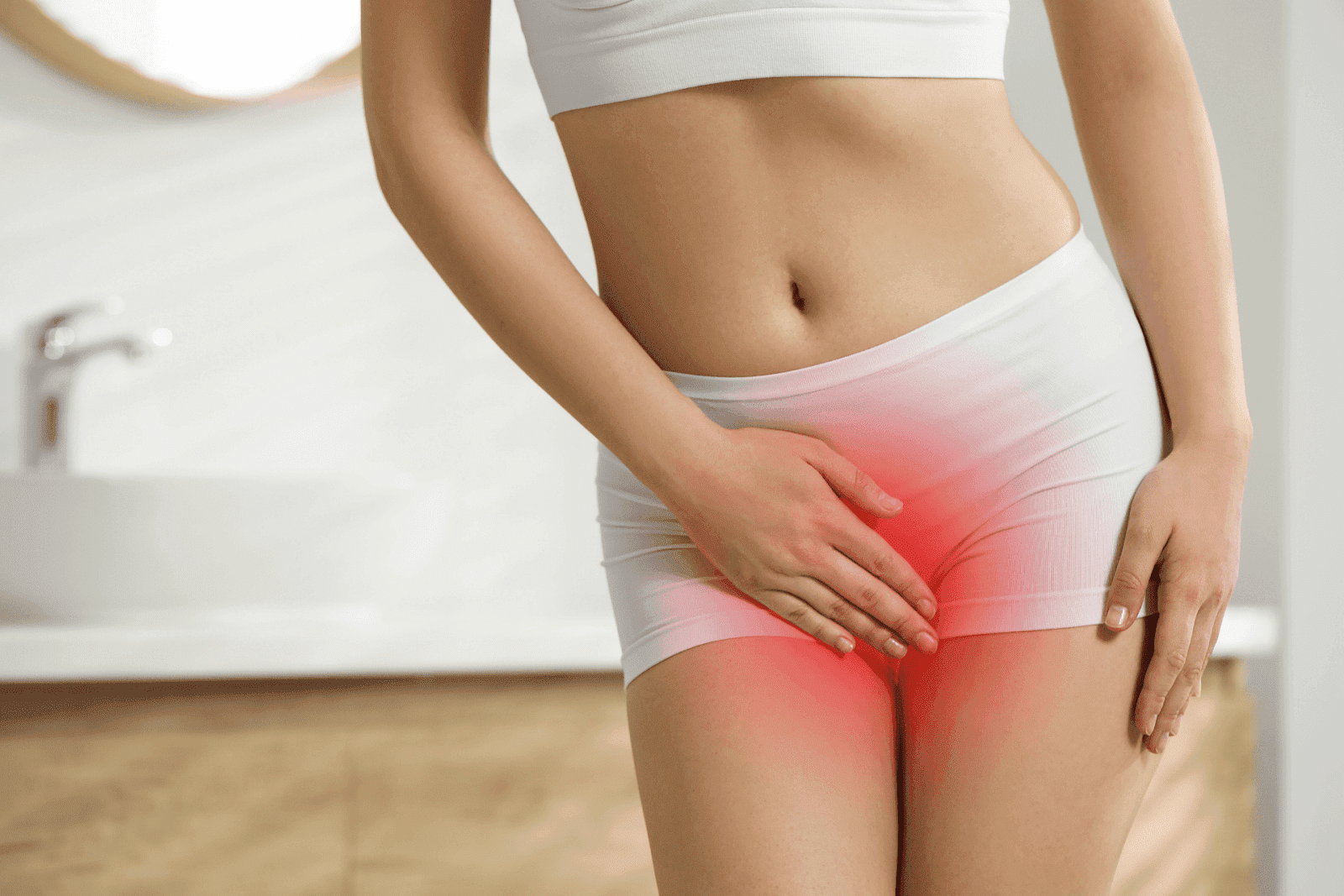How to Prevent UTIs After Having Sex
Urinary tract infections, or UTIs, are a common health issue that many people face, especially after sexual activity. While UTIs can be uncomfortable and sometimes painful, [...]
Read More
Medically reviewed by Alan Lucks | MD, Alan Lucks MDPC Private Practice - New York on October 11th, 2025.
E. coli bacteria from the anal area cause 85% of UTIs by traveling up the urethra during intercourse, with the short female urethra (4cm vs 20cm in men) creating 50x higher infection risk.
Urinating within 15-30 minutes post-intercourse flushes bacteria from the urethral opening before they can ascend to the bladder and multiply into a full infection.
Spermicide-containing contraceptives alter vaginal pH and kill protective lactobacilli, increasing UTI risk by 40% compared to hormone-free barrier methods or condoms alone.
Dehydration concentrates urine and reduces frequent urination that naturally clears bacteria—aim for pale yellow urine as a hydration indicator throughout the day.
Burning during urination, pelvic pressure, and cloudy or strong-smelling urine within 24-48 hours after sex indicate bacterial invasion requiring antibiotic treatment to prevent kidney infection.
Urinary tract infections, or UTIs, are a common health issue that many people face, especially after sexual activity. While UTIs can be uncomfortable and sometimes painful, they are usually easy to prevent with the right habits and care. Understanding why UTIs occur after sex and how to reduce your risk can help you maintain good urinary health and avoid unnecessary discomfort.
In this article, we will explore the causes of post-sex UTIs, practical prevention tips, and when to seek medical advice. Additionally, we’ll introduce how modern telehealth services, such as Doctronic.ai, can provide quick and reliable medical guidance if you experience symptoms or have questions about your urinary health.
 Understanding Why UTIs Happen After Sex
Understanding Why UTIs Happen After SexUTIs occur when bacteria enter the urinary tract and multiply, resulting in an infection. The most common culprit is Escherichia coli (E. coli), a bacterium that typically resides in the colon but can cause infection if it migrates to the urethra and bladder.
Sexual activity can increase the risk of UTIs because it may introduce bacteria from the genital or anal area into the urethra. This is especially true for women, whose urethra is shorter and closer to the anus than men’s, making it easier for bacteria to reach the bladder.
Other factors that can contribute to post-sex UTIs include:
Friction during intercourse, which can irritate the urethra
Using spermicides or diaphragms, which may alter the natural vaginal flora
Not urinating soon after sex, allowing bacteria to remain near the urethra
Dehydration or infrequent urination, which reduces the flushing of bacteria
In addition to these factors, hormonal changes can also significantly contribute to susceptibility to UTIs. For instance, during certain phases of the menstrual cycle, hormonal fluctuations can affect the vaginal flora, potentially leading to an imbalance that favors the growth of harmful bacteria. Moreover, postmenopausal women may experience a decrease in estrogen levels, which can lead to thinning of the vaginal walls and a reduction in natural lubrication, further increasing the risk of irritation and infection during sexual activity.
Furthermore, the choice of contraceptive methods can influence UTI risk. Some studies suggest that women who use non-barrier methods, such as hormonal birth control, may have a higher incidence of UTIs compared to those who use barrier methods like condoms. This could be due to the fact that barrier methods can help prevent the introduction of bacteria into the urethra during sex, while hormonal methods may not provide this protective effect. Understanding these nuances can empower individuals to make informed choices regarding their sexual health and UTI prevention strategies.
One of the simplest and most effective ways to prevent UTIs after sex is to urinate within 15 to 30 minutes. This helps flush out any bacteria that may have entered the urethra during intercourse before they can multiply and cause infection. The act of urination serves as a natural defense mechanism, expelling potential pathogens and reducing the likelihood of them taking hold. Additionally, this practice can be easily integrated into your post-coital routine, making it a hassle-free step toward better urinary health.
Proper hygiene before and after sex is essential. Washing the genital area gently with water can reduce bacterial presence without disrupting the natural balance of healthy bacteria. Avoid harsh soaps or douches, which can irritate sensitive tissues and increase infection risk. It’s also beneficial to ensure that both partners are practicing good hygiene, as bacteria can be transferred between them. Consider using unscented wipes or gentle cleansers specifically designed for intimate areas to further minimize irritation and maintain a healthy environment.
Drinking plenty of water throughout the day encourages regular urination, which naturally cleanses the urinary tract. Avoid holding urine for long periods, as this can allow bacteria to grow. Staying hydrated not only supports urinary health but also contributes to overall bodily functions, including digestion and skin health. Aim for at least eight glasses of water daily, and consider incorporating hydrating foods like cucumbers and watermelon into your diet to help maintain optimal fluid levels.
Cotton allows better air circulation compared to synthetic fabrics, reducing moisture buildup that can encourage bacterial growth. Wearing loose-fitting clothing also helps keep the genital area dry and less hospitable to bacteria. In addition to cotton underwear, consider opting for breathable fabrics in your outerwear, especially during warmer months or after exercising. This simple change can significantly enhance comfort and reduce the risk of irritation and infections.
Some forms of contraception, such as spermicides and diaphragms, have been linked to higher UTI risk. If you frequently experience UTIs after sex, discuss alternative birth control options with your healthcare provider. It’s important to find a method that not only prevents pregnancy but also aligns with your body’s unique needs. Hormonal contraceptives, such as the pill or IUDs, may be viable alternatives that can help mitigate UTI risks while providing effective birth control.
Dryness during intercourse can cause irritation and microtears in the urethra, providing an entry point for bacteria. Using a water-based lubricant can reduce friction and help protect sensitive tissues. Additionally, lubricants can enhance pleasure during intimacy, making the experience more enjoyable for both partners. It’s worth exploring different types of lubricants, as some may contain added benefits like aloe vera or vitamin E, which can promote skin health and further reduce the risk of irritation.
Most UTIs are straightforward to treat with antibiotics, but it’s important to recognize when to seek professional care. Symptoms of a UTI include:
A burning sensation during urination
Frequent urge to urinate, even when little urine is passed
Cloudy, dark, or strong-smelling urine
Lower abdominal or pelvic pain
Fever or chills, which may indicate the infection has reached the kidneys
If you experience any of these symptoms, especially after sexual activity, it’s important to consult a healthcare provider promptly. Untreated UTIs can lead to more serious infections.
For fast, convenient access to medical advice and treatment, consider using telehealth services like Doctronic.ai. Doctronic offers affordable video visits with licensed doctors 24/7 across all 50 states, making it easier than ever to get expert care without leaving your home.
Doctronic is revolutionizing healthcare by combining the power of AI with real doctors to provide fast, personalized medical care. If you have questions about UTI symptoms, prevention, or treatment, Doctronic’s AI doctor can deliver comprehensive, evidence-based answers in seconds. This AI-driven approach uses the latest peer-reviewed medical research to ensure you receive the most accurate and up-to-date information.
After your AI consultation, you can schedule an affordable telehealth video visit with a licensed physician for diagnosis and treatment, all from the comfort of your home. With over 10 million users and rapid growth, Doctronic is becoming the go-to resource for primary care powered by AI.
Beyond preventing UTIs after sex, maintaining overall urinary tract health is important. Here are some additional habits to consider:
Using condoms can reduce the risk of sexually transmitted infections that may contribute to urinary symptoms and complications.
Conditions like diabetes can increase UTI risk. Keeping blood sugar levels under control and following your healthcare provider’s advice can help reduce the risk of infections.
Routine health visits allow early detection and management of urinary tract issues. Doctronic makes it easier to stay on top of your health with quick access to care.
Only use antibiotics when prescribed by a healthcare professional. Overuse can lead to resistant bacteria, making infections harder to treat.
 24/7 Support for UTI Prevention and Relief
24/7 Support for UTI Prevention and ReliefUTIs after sex are a common but preventable problem. By adopting simple habits such as urinating promptly after intercourse, maintaining good hygiene, staying hydrated, and choosing appropriate contraception, you can significantly reduce your risk. Recognizing symptoms early and seeking timely medical advice is crucial to avoiding complications.
For those seeking fast, reliable, and affordable healthcare support, Doctronic.ai provides an innovative solution. Combining AI-powered medical expertise with access to real doctors 24/7, Doctronic makes managing your urinary health easier than ever.
Remember, taking care of your urinary tract is an important part of overall well-being. With the right knowledge and tools, you can enjoy a healthy, comfortable life free from the disruption of UTIs.
Don't let the worry of UTIs disrupt your life after intimacy. Embrace the innovative care of Doctronic, where our AI-powered doctor provides immediate, personalized medical advice for free. With Doctronic, you benefit from the most up-to-date, peer-reviewed medical knowledge without the wait. Our AI remembers every detail of your health history, offering a level of personal care that's always ready for you. And if you need to speak with a real doctor, our affordable telehealth video visits are available 24/7 in all 50 states. Join over 10 million satisfied users and experience primary care that's faster, smarter, and more personal. Skip the line. Talk to an AI Doctor Now, for free.
The single most effective prevention strategy is urinating within 30 minutes after sexual activity to mechanically flush bacteria before they establish infection. Combining this with adequate hydration and avoiding spermicides creates a strong defense against post-coital UTIs. If you develop symptoms despite prevention efforts, Doctronic can help you get prompt treatment to prevent complications.
Urinary tract infections, or UTIs, are a common health issue that many people face, especially after sexual activity. While UTIs can be uncomfortable and sometimes painful, [...]
Read More